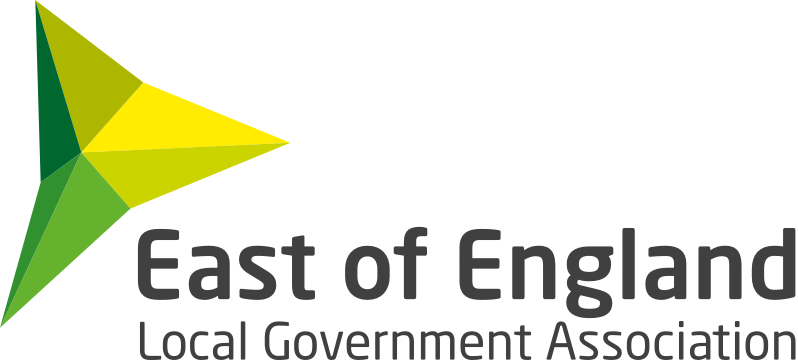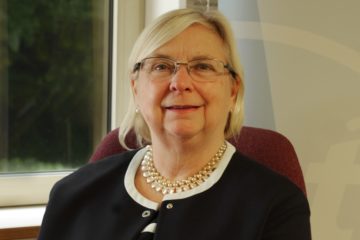Virtual Council Meetings
This allows for local government to progress with business, but also adheres to the government guidelines around social distancing to stop the spread of Covid-19. The government press release is available here.
Rochford reached out to EELGA asking if any of the councils in the region had successfully conducted a virtual council meeting. Welwyn Hatfield successfully held their cabinet meeting virtually a matter of days after the regulations came into force. Welwyn Hatfield and Rochford discussed the work that took place surrounding the set-up of the virtual meeting, the lessons learned and next steps.
Key Advice
- Good idea to conduct an ‘IT audit’ to check what councillors have, do they have access to Zoom already, have the equipment needed and so on.
- Welwyn Hatfield offered an open invite to councillors to talk to democratic services on zoom to check how it worked. Whilst still adding all councillors to Zoom, democratic services prioritised those needed for first few meetings, making sure they all knew how it worked.
- Make sure members who are part of meeting are fully informed beforehand. Procedure notes were sent out to help guide this and then lead into full rehearsal for the meeting with all necessary members and officers attending.
- Separate rehearsal with the Chair to ensure they provide the correct message to all involved and understand the functions needed for that particular meeting.
- Public perception is also key – need to ensure members and officers are well presented to the public. For example, standard dress code and no personal photos behind them or blur background, ensure lighting is switched on for any evening meetings.
The Meeting
Did you make adjustments to standing orders and schemes of delegations in order to streamline the meetings?
Welwyn Hatfield Council’s current standing orders are fairly flexible to deliver on virtual meetings – they just had to wait for the regulations to come out.
It is hoped that at their next full council meeting, the council will revisit schemes of delegation to further streamline delegated decision making. Although councils are now able to hold virtual meetings in order to allow for the delivery of critical services at this time, virtual meetings will only be used for necessary decision making. Welwyn Hatfield is aware that they might need to refine how virtual meetings are run and may need additional standing orders to enable this.
How did you choose which meeting to hold first?
Welwyn Hatfield chose their Cabinet Meeting to do it as a trial first, conveniently it was already scheduled to take place a few days after the new regulations came out. It is also the smallest of the council meetings. The Chairman was provided with a briefing and made a short speech to introduce this as a first virtual meeting and to explain that it was a new way of holding a committee meeting for all involved.
The main purpose was to reach out to the community and show governance and democracy is still happening in a professional and transparent way.
Which meetings will you focus on next?
Due to the unique situation, the council wishes to focus on urgent and necessary decisions that need to take place. The Chief Executive is working with Directors to look at the council’s forward plan to identify what decisions must be taken by Cabinet and Council. These will then form the basis of the meetings that take place. The main priorities are planning and licensing, therefore the next step is to hold the planning committee on the 23rd April.
What about public speaking?
Welwyn Hatfield has not made a decision on public speaking yet. However, a few ideas have been suggested, these include members of the public submitting statements in advance of meeting (supporters and objectors) for planning officer or Chairman to read out or holding people in a virtual waiting room/breakout room until they are needed to speak or inviting public speakers to submit a video recording of their representations.
Software
How did you decide on the software to use?
Welwyn Hatfield decided to use Zoom as the functionality and quality seemed to be better than Teams, as well as being more user friendly. Extra measures and safeguards have been enabled on the corporate account to increase the security due to the recent concerns raised. To help mitigate some security concerns the councillors are all connected through the corporate account Welwyn Hatfield has set up and are not allowed to use any other account for council business. If officers are required for the meeting they can also be added to the corporate account and the same rules will apply.
How do you manage voting? Have you thought about making an assumption in favour and indicate if voting otherwise?
For the Cabinet meeting Welwyn Hatfield asked councillors to do a show of hands, as this is easy for smaller meetings. The council were in agreement that voting should be done through Zoom rather than use other technology, as this could cause confusion. For larger meetings a show of hands on screen is still the preference for transparency to the public but a decision is yet to be made. There is the possibility of working with group leaders for a quorum of members in order to reduce the number of attendees. This may assist the Chairman to manage the meeting, but it does depend on the meeting.
How did you keep the private and public business in meetings separate?
Welwyn Hatfield thought about this when looking into the functionality of Zoom; the host of meeting can exclude anybody at any one point. There are multiple options, either those who are not required can be placed into a waiting room or be disconnected from the call entirely. It is also easy for the host to check if the correct people are in the meeting. At our Cabinet meeting, the Chairman clearly announced that the meeting could not be viewed publicly once members had resolved to move into private session.
Hosting – Who is best person to host meeting? And how can people present documents?
Welwyn Hatfield’s Cabinet meeting was hosted by the AV person and the chairperson was co-host, both had ability to turn participants’ microphones on and off. Zoom has flexibility around hosting as the host can change during the meeting, for example between democratic services officer and then a member.
Screen sharing is also easy; a person does not have to be host to share their screen. The host and co-host can also direct message people whilst the meeting is being held.
Welwyn Hatfield publish their agenda and public reports on their website five working days in advance of all meetings, and the papers are available to be viewed at the same time the meeting is taking place.
Have you considered issues surrounding loss of connectivity for any members of the committee and potential challenges to decisions taken post-meeting, particularly for planning?
For Welwyn Hatfield’s forthcoming planning meeting, a conversation has taken place with the head of planning about the risk of this happening and what the mitigating actions could be, for example, deferral or adjournments etc. It could be argued that informed decisions could not be made by a member due to not hearing the full proposal because their connectivity was lost. Each council and meeting must consider the best option, especially if the application being considered is high profile. For Welwyn Hatfield, one of the most important things is to ensure that explanations are given to public viewers as to what is happening and why.
Recording and publishing of the meeting
Welwyn Hatfield have space on their website where the public can watch live and archived meetings, so the virtual meetings are being stored on there. Other councils have used YouTube to live stream and store previous meetings.
In order to continue sharing best practice a chatter group is being established for democratic services officers to discuss any issues and learn from experiences. If you would like to be part of this chatter group please contact [email protected]
The National LGA have also established a webpage with guidance around virtual meetings.
Thank you to Welwyn Hatfield and Rochford Councils to agreeing for EELGA to create this case study.


